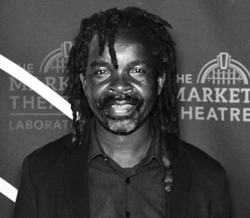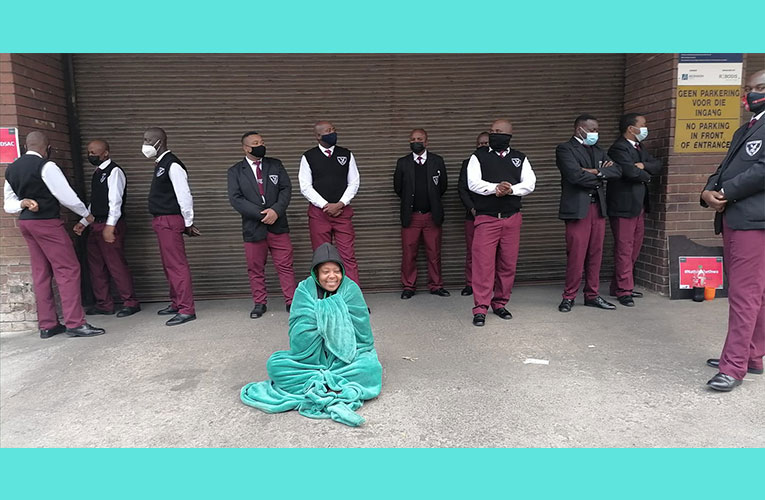South African Cultural Observatory report paints grim picture of devastation on the creative sector by Covid-19
The release of the report coincides with soprano Sibongile Mngoma and some artists camping at the offices of the Department of Sport, Arts and Culture in Pretoria over artists’ grievances. However after meeting Vusimuzi Mkhize the artists decamped from the building on Monday.
By Edward Tsumele, CITYLIFE/ARTS Editor

The impact of Covid-19 on the South African economy in the year 2020 has been huge and part of that negative outcome has been the result of the creative industry’s non activity.
On Friday October 22, 2021, at a place called Just Badela, a winery and restaurant in Orlando West, Soweto, we had an opportunity to hear from academics from the Nelson Mandela Metropolitan University about the horror of the destruction of Covid-19 to the creative and cultural sector in the South African economy. This is as a result of the non performance of the creative and cultural industries due to the pandemic and the lockdowns that resulted from that. This insightful report based on rigorous research by the South African Cultural Observatory (Saco) sheds light on how the South African cultural and creative industries (CCIs) have been impacted by the Covid-19 crisis.
Billions of Rands have been knocked off the GDP of South Africa as a result worsening the situation of the economy, which according to the World Bank has seen the country’s economy as a whole shrink by 7% in 2020.
“The study was done through a combination of macroeconomic modeling and industry survey. Macroeconomic modeling estimated that the CCI’s direct contribution to the South African GDP fell from R84.3 billion in 2019, to R42.2 billion in 2020 – a drop of 50%. While there has been some slow recovery in 2021, which is expected to continue, the contribution of the CCIs to South Africa’s GDP in 2021 is forecast to be R46.9 billion – still 44% less than in 2019. The research shows that while business continuity improved for all domains (defined using the UNESCO Framework, 2009), recovery was slower for domains with high levels of informality, for those with a greater proportion of freelancers, as well as for those who operated in a mostly face-to-face mode. The most vulnerable domains were Performance and Celebration, Audio-Visual and Interactive Media, and Visual Arts and Crafts. Technical and support workers were also one of the most negatively impacted sub-sectors,” the report says.
“While the creative sector in its entirety is one of the most severely affected, the report gives us a good picture of which subsectors should be given priority in recovery strategies”, commented SACO Executive Director, Ms Unathi Lutshaba. Evidence from the report indicates that the online environment is becoming increasingly important for CCI business continuity, and that the shift to digital business models will, for some, remain important even after the pandemic has passed. A much greater proportion of respondents to the 2021 survey (64%) than the 2020 survey (35%) reported moving their business activities online, and 66% of respondents said they would continue online business activities post-COVID,” the report states.
In the same report, it is however stated that a number of businesses in the creative sector also migrated to online platforms, which looks like something that will even continue long after Covid-19, but there are also issues to deal with in the digital space for creatves.
“For example there is a comedian who told us that when Covid-19 struck, he decided to record his show to distribute online for R50 per ticket. To start with it was weird to perform without an audience. But also when a pub owner bought a ticket for R50, he decided to screen the entire show to his patrons who numbered 50 or so, and these people watched the show for R50,and the comedian did not know what to do with this,” said Professor Jen Snowbell at the media launch of the report. She is the lead researcher on this project.
Snowbell however said that there were positive development when South African creatives, for example fine art auction houses trade art online.
“First of all these digital platforms used by fine art auction houses to sell art during the lockdown meant that South African art is exposed to more people, a global audience and also that this opportunity is in fact creating a huge archive of South African art that will always be there for people to peruse. The only concern though is the issue of copyright infringement that also comes with this kind of development,” said Snowbell.
The presentation of the report was also attended by Mduduzi Mbada Head of Policy in the Gauteng Provincial Government Premier’s Office, Dr. Andre Gouws economist from Nelson Mandela Metropolitan University, Unathi Lutshaba. Director of Saco and James Ngcobo, the Artistic Director of the Market Theatre Foundation, among others.
Ngcobo explained that when Covid-19 struck, the Market Theatre decided to think fast in order to ride the wave, and innovated to make sure that the doors were not closed to artists during their time of need as the theatre recorded monologues of some of Shakespeare’s plays, in which well known personalities, not necessarily all of them from the theatre sector, participated. That online series became a success, as a demonstration of the resilience and the tenacity of the arts in the face of challenges such as the ones of Covid-19, Ngcobo told us.
The research was commissioned by DSAC, a department that is currently facing immense pressure from the creative sector due to its lip flop response to the challenges the creative sector is facing in light of Covid-19.
And not quite coincidentally, as Saco was presenting this report in Soweto on Friday, about 45 minutes away, artists led by arts activist and soprano Sibongile Mngoma were staging a sit it at the Department of Sport, Arts and Culture in Pretoria, demanding among other things, the head of Minister of Sport, Arts and Culture, Nathi Mthethwa, and his senior officials.
This is as a result of the DSAC’s response to the plight of artists during this difficult period for the creative industry. DSAC is currently behind schedule with regards to adjudicating applications for Covid-related grants, and this is making its relationship with artists who are reeling from difficulties related to lack opportunities to work, tense.
This in many ways is a clear demonstration of a clear break down of a relationship between a significant portion of the artiste body in the country with the department established to look after the creative and cultural sector over Covid-19 money.
This is the second time that Mngoma and some artists have protested at DSAC offices in three months this year, having done so the first time on July 17, 2021, with more or less similar demands. The artists did this after having occupied the offices of the National Arts Council In Newtown for 60 days over concerns in the manner that the NAC handled the disbursement of the Presidential Economic Stimulus Package funds meant to assist artists earlier this year.
A forensic investigation report that was commissioned by the NAC from instructions from Minister Mthethwa thereafter, among other people, fingers the top brass of the NAC, from Council members down to senior executives and staff for wrong doing.
However that report has not been fully released as only a summary of it has been.
ON Monday as the sit in by Mngoma and fellow protesting artists, that included Brian Ntombela and Thami ka Mbongo, among others, continued, DSAC brought more security reinforcement, in the form of extra security guards who were seen surrounding Mngoma who was draped in a turquoise blanket that caused a stir in social media as it appeared to blend well with the background of the security guards’ uniforms.
The situation was tense and unpredictable how it was going to unfold or end, especially as Mngoma vowed that they were going nowhere until the issues they raised are addressed.
However the situation was eventually defused when Sports, Arts and Culture Director General Vusimuzi Mkhize met Mngoma and fellow camping artists on Monday where the group had an opportunity to tell Mkhize of their grievances face to face.
The grievances if a cocktail of complaints that include demands Minister Mthethwa, Mkhize, himself and Chief Director Charles Mabaso resign.
However in a discussion that progressed frankly, it was agreed by both sides that they would meet again on Monday, November 1, 2021 for a follow up meeting where Mkhize and his team are expected to have reflected onand deliberated on the demands.
But before Mngoma and her team left, she demanded two things from the DG, and that is the release of the results of the Mzansi golden Economy’s recent call for artists to apply, which has been delayed, as well as a copy of the Forensic Investigation into the Presidential Economic Stimulus that plunged the National Arts Council into a crisis.
However on Monday CITYLIFE/ARTS was unable to establish whether any of those demands were met immediately.










